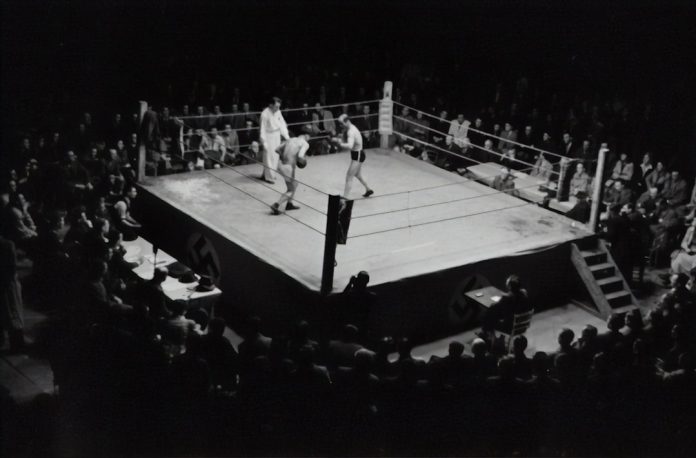Fanatics, the leading sports merchandise retailer, has made a significant investment in innovation labs to revolutionize the sports collectibles market. With a commitment to staying at the forefront of technology and providing fans with unique and cutting-edge products, Fanatics is constantly pushing the boundaries of what is possible in the world of sports memorabilia. In this blog post, we will explore the rise of Fanatics sports cards, the popularity of sports cards in the collectibles market, the evolution of card trading from paper to digital, the role of Fanatics’ innovation lab in developing new technologies, and the future of sports card trading.
The Rise of Fanatics Sports Cards
Fanatics sports cards have taken the collectibles market by storm. These cards offer fans a unique and innovative way to collect and trade their favorite athletes’ memorabilia. Unlike traditional sports cards, which are typically made of paper and feature static images, Fanatics sports cards are made of high-quality materials and feature dynamic digital content. This digital content can include videos, highlights, and even interactive elements that allow fans to engage with their favorite athletes in new and exciting ways.
One of the key features that sets Fanatics sports cards apart is their use of augmented reality (AR) technology. By scanning the card with a smartphone or tablet, fans can unlock exclusive content and experiences related to the athlete featured on the card. This could include behind-the-scenes footage, interviews, or even virtual meet-and-greets with the athlete themselves. This immersive experience has captured the attention of collectors and fans alike, making Fanatics sports cards highly sought after in the market.
The Popularity of Sports Cards in the Collectibles Market
Sports cards have long been a popular collectible item among fans and investors alike. In recent years, however, their popularity has skyrocketed, with record-breaking sales and a surge in interest from both new and seasoned collectors. The appeal of sports cards lies in their ability to capture a moment in time and connect fans with their favorite athletes. Whether it’s a rookie card of a future Hall of Famer or a limited-edition card featuring an iconic play, sports cards have a unique ability to evoke nostalgia and passion in collectors.
Furthermore, sports cards have also become a lucrative investment opportunity. With the rise of online marketplaces and the increased interest in sports memorabilia, the value of certain cards has skyrocketed. Collectors and investors are now able to buy, sell, and trade cards with ease, making it an attractive option for those looking to diversify their investment portfolio. The combination of nostalgia, passion, and potential financial gain has made sports cards a hot commodity in the collectibles market.
The Evolution of Card Trading: From Paper to Digital
The world of card trading has come a long way since its humble beginnings with physical cards made of paper. In recent years, digital platforms have emerged as a popular alternative for collectors and traders. These platforms allow users to buy, sell, and trade cards online, eliminating the need for physical transactions and expanding the reach of the collectibles market.
Physical cards have their own charm and appeal. Holding a tangible piece of memorabilia in your hands can be a nostalgic and satisfying experience. However, physical cards also come with limitations. They can be easily damaged or lost, and their value is often dependent on their condition. Digital platforms offer a solution to these challenges by providing a secure and convenient way to trade cards. Additionally, digital platforms can offer features that physical cards cannot, such as real-time updates on card values, instant transactions, and access to a global marketplace.
Innovation Lab’s Role in Developing Cutting Edge Technologies
Fanatics’ innovation lab plays a crucial role in developing cutting-edge technologies for the sports collectibles market. The lab is dedicated to exploring new ideas, experimenting with emerging technologies, and pushing the boundaries of what is possible in the industry. By investing in research and development, Fanatics aims to stay ahead of the curve and provide fans with innovative products and experiences.
The innovation lab focuses on a wide range of technologies, including artificial intelligence (AI), blockchain, virtual reality (VR), and augmented reality (AR). These technologies have the potential to revolutionize the way fans interact with sports memorabilia and collectibles. By leveraging AI, Fanatics can analyze vast amounts of data to inform trading decisions and provide personalized recommendations to collectors. Blockchain technology allows for secure and transparent transactions, as well as the authentication and tracking of collectibles. VR and AR have the potential to create immersive experiences for fans, allowing them to interact with their favorite athletes and explore virtual collections.
The Use of Artificial Intelligence in Sports Card Trading

Artificial intelligence (AI) is playing an increasingly important role in sports card trading. With the vast amount of data available in the collectibles market, AI can analyze trends, patterns, and historical data to inform trading decisions. This can help collectors and investors make more informed choices when buying or selling cards.
One of the key benefits of AI in sports card trading is its ability to process large amounts of data quickly and accurately. AI algorithms can analyze historical sales data, market trends, player performance statistics, and other relevant factors to identify potential investment opportunities. This can help collectors and investors identify undervalued cards or predict future trends in the market.
However, there are also potential drawbacks to relying solely on AI for trading decisions. AI algorithms are only as good as the data they are trained on, and they may not always account for intangible factors that can influence card values, such as player injuries or off-field controversies. Additionally, AI algorithms may not be able to capture the emotional or sentimental value that certain cards hold for collectors. Therefore, while AI can be a valuable tool in sports card trading, it should be used in conjunction with human judgment and expertise.
The Impact of Blockchain Technology on the Collectibles Market
Blockchain technology has the potential to revolutionize the collectibles market by providing a secure and transparent way to authenticate and track sports memorabilia. Traditionally, the authentication process for collectibles has relied on physical certificates of authenticity or third-party authentication services. However, these methods can be time-consuming, costly, and prone to fraud.
Blockchain technology offers a solution to these challenges by providing a decentralized and immutable ledger that records the ownership and transaction history of collectibles. Each collectible is assigned a unique digital token or “non-fungible token” (NFT) that is stored on the blockchain. This token serves as a digital certificate of authenticity and can be easily verified by anyone with access to the blockchain.
The use of blockchain technology in the collectibles market has several benefits. First, it provides a secure and tamper-proof way to authenticate collectibles, reducing the risk of fraud. Second, it allows for transparent and verifiable ownership records, making it easier to buy, sell, and trade collectibles. Finally, it opens up new possibilities for fractional ownership and investment in collectibles, as blockchain tokens can be divided into smaller units that can be bought and sold independently.
The Future of Sports Card Trading: Virtual Reality and Augmented Reality
The future of sports card trading is likely to be shaped by virtual reality (VR) and augmented reality (AR) technologies. These technologies have the potential to create immersive experiences for collectors and fans, allowing them to interact with their favorite athletes and explore virtual collections.
Virtual reality (VR) technology can transport collectors into a virtual world where they can view and interact with their sports card collections in a three-dimensional space. They can walk through virtual galleries, showcase their collections to others, and even participate in virtual trading events. VR technology can also be used to create virtual meet-and-greets with athletes, allowing fans to have a personal and interactive experience with their favorite sports stars.
Augmented reality (AR) technology, on the other hand, overlays digital content onto the real world. This means that collectors can use their smartphones or tablets to scan their sports cards and unlock exclusive content and experiences. For example, scanning a card could reveal a video highlight of the athlete in action, or provide access to behind-the-scenes footage. AR technology can also be used to create interactive games and challenges related to the sports cards, adding an extra layer of engagement for collectors.
The Importance of Data Analytics in the Sports Collectibles Industry
Data analytics plays a crucial role in the sports collectibles industry, particularly in the context of sports card trading and collecting. With the vast amount of data available, collectors and investors can leverage data analytics to make more informed decisions and maximize their returns.
Data analytics can provide insights into market trends, player performance statistics, historical sales data, and other relevant factors that can influence card values. By analyzing this data, collectors and investors can identify potential investment opportunities, predict future trends in the market, and make more informed decisions when buying or selling cards.
Furthermore, data analytics can also help collectors and investors track the performance of their collections over time. By analyzing sales data and market trends, they can assess the value of their cards and make strategic decisions about when to buy or sell. This data-driven approach can help collectors and investors optimize their portfolios and maximize their returns.
Fanatics’ Commitment to Advancing the Sports Collectibles Market
In conclusion, Fanatics’ investment in innovation labs demonstrates their commitment to advancing the sports collectibles market. Through the development of cutting-edge technologies such as augmented reality (AR), artificial intelligence (AI), and blockchain, Fanatics is revolutionizing the way fans interact with sports memorabilia and collectibles.
The rise of Fanatics sports cards has captured the attention of collectors and fans alike, offering a unique and immersive experience that sets them apart from traditional sports cards. The popularity of sports cards in the collectibles market continues to grow, driven by nostalgia, passion, and the potential for financial gain.
As the world of card trading evolves from physical to digital platforms, collectors and traders have more options than ever before. Digital platforms offer convenience, security, and access to a global marketplace. However, physical cards still hold their own charm and appeal.
Fanatics’ innovation lab plays a crucial role in developing new technologies for the sports collectibles market. By exploring emerging technologies such as AI, blockchain, VR, and AR, Fanatics is pushing the boundaries of what is possible in the industry.
The future of sports card trading is likely to be shaped by VR and AR technologies, which have the potential to create immersive experiences for collectors and fans. Additionally, data analytics will continue to play a crucial role in informing decision-making in the sports collectibles industry.
Overall, Fanatics’ commitment to innovation and advancing the sports collectibles market is evident in their investment in innovation labs and their dedication to providing fans with unique and cutting-edge products. As technology continues to evolve, it will be exciting to see how Fanatics and other industry leaders shape the future of sports memorabilia and collectibles.
If you’re a sports card collector looking to boost the worth and appeal of your collection, you won’t want to miss this complete guide to NFL sports card grading. This informative article from Breakaway Cards provides valuable insights and tips on how to navigate the world of sports card grading. From understanding the grading scale to identifying key factors that affect a card’s value, this guide is a must-read for any serious collector. Check it out here and take your collection to the next level.
FAQs
What is Fanatics?
Fanatics is an American online retailer of licensed sportswear, sports equipment, and merchandise.
What are Innovation Labs?
Innovation Labs are research and development centers that focus on creating new and innovative technologies.
Why is Fanatics investing in Innovation Labs?
Fanatics is investing in Innovation Labs to develop cutting-edge technologies that will enhance the fan experience and improve the company’s operations.
What kind of technologies will be developed in the Innovation Labs?
The specific technologies that will be developed in the Innovation Labs have not been announced, but they will likely focus on areas such as e-commerce, mobile apps, and fan engagement.
How will the Innovation Labs benefit Fanatics?
The Innovation Labs will benefit Fanatics by allowing the company to stay ahead of the competition and provide fans with the latest and greatest technologies. It will also help the company streamline its operations and improve efficiency.
When will the Innovation Labs be operational?
The article does not provide a specific timeline for when the Innovation Labs will be operational.



